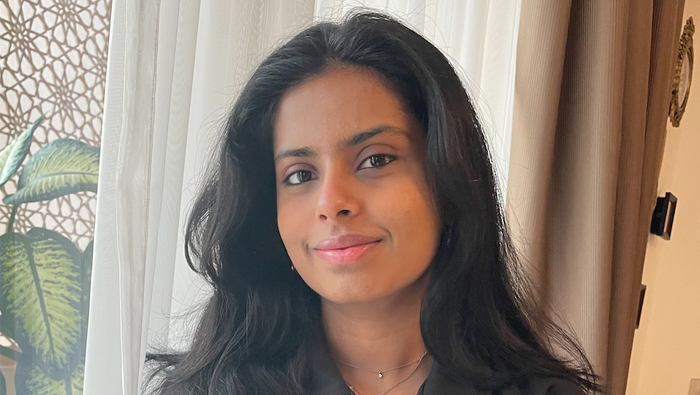Muscat: A Muscat-based Indian student’s research project has been recognised and awarded by the United Nations recently.
Vaishnavi Manivannan, a high school student of the ABA Oman International School, was awarded a grant for her project by the UN after she spoke at the Science Summit at the United Nations General Assembly (UNGA77) in September.
Vaishnavi’s project titled, ‘Women in Research’ delves into the reasons why lesser number of girls are taking up STEM subjects at high school. STEM stands for science, technology, engineering and mathematics and refers to any subject that fall under these four disciplines.
In an appreciation letter to Vaishnavi, the United Nations Girl Up Funds Foundation said: “You have been recognised by the United Nations and awarded the 2022 UN Girl Cup Grant in support of your work at Women in Research.” The Science Summit at the UNGA77 witnessed a total of 1,600+ speakers interact over nearly 400 sessions.
Speaking to Times of Oman, Vaishnavi said: “I am so happy that my project has been recognised by the United Nations. It is a great boost to my efforts in highlighting the lack of interest among STEM subjects among girls.”
The Indian high-school student said: “It all began when I was attending the New York Academy of Sciences (NYAS) research programme. I was connected with girls from all around the world who had experienced the same gender gap I experienced with few girls in my community taking up STEM subjects. Trying to understand the root of the problem, specifically in Oman, I took a simple step in sending out a survey to female students asking about their level of interest in STEM and what their motivation is.
“For the vast majority of respondents (to be exact, 96%), I found a lack of interest from middle to high school and also no proper source of motivation or inspiration. This is exactly what prompted me to start this platform to provide girls a platform with inspiration and a sense of community along with all technical resources.”
Vaishnavi then successfully conducted an online summer workshop with over 200 attendees from the Middle East in 2020, the year she began the project ‘Women in Research’.
The ABA Oman student, whose father is an engineer and mother a doctor, said: “It was one of the girls through the NYAS programme who had actually contacted me to inform me of an opportunity to be selected as a panelist for the Science Summit at the UNGA77.”
“I was instantly elated upon hearing about this. After a month of going through nominations from around the world, I was selected as the only panelist from high school, representing Oman at the Summit. Apart from my team at ‘Women In Research’, I am grateful for the support my Biology teacher Aida Nausia Bonet, who has given me a lot of support for the project at school.”
Vaishnavi, who wishes to continue with her project, hopes to make it to one of the Ivy League colleges in the US next year.
The 17-year-old senior runs the outreach organisation of Women In Research (also called Wi-Research, https://www.wi-research.org/).
It is through the organisation that Vaishnavi and her team help individuals from under-resourced communities to conduct their own research within the field of STEM. The model works in a way that they set up one-on-one meetings with mentees and offer resources and assistance in the project they are interested in.
Vaishnavi said: “We also help mentees comprehend complex or high-level research papers by breaking it down to smaller, easier-to-understand components.
“In addition, my team interviews female researchers in STEM to get an insight into their experiences and struggles in order to establish representation from different backgrounds to inspire and motivate aspiring researchers. Over the past two years, Wi-Research has reached over 900 students in helping them start with their own research project. The organisation has also garnered over 500 members from over seven countries, all working on different committees.”
On her experience at the Science Summit, she said: “As a panelist, speaking alongside three exceptional women, I discussed my experiences of being a woman in STEM in Oman, my work with Wi-Research and helping girls achieve greater numbers in STEM and what we can do to get there.”
Starting out in STEM, by taking Higher Level classes in school or seeking out-of-school opportunities to conduct research, Vaishnavi realised that there was no strong representation in the Middle East or Asia to inspire girls to take up STEM right from middle and high school.
This led to her interviewing successful female researchers from a broad range of backgrounds and expertise—from high school to places like NASA.
“I was able to make some life-long connections through this platform and learned a lot in terms of dealing with obstacles and research effectively. I wanted to share everything I learned from these interviews to a larger audience, which is what ultimately led to starting the platform of Wi-Research. Over time, we got to directly mentor aspiring researchers and help them stay motivated throughout the process,” she concluded.
